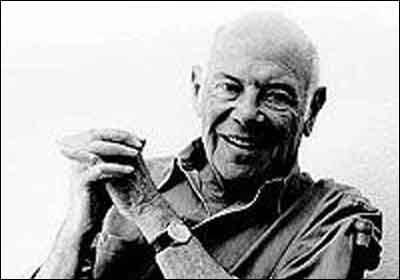On this day on 28th October
On this day in 1466 Erasmus, Dutch philosopher was born. In 1499 Erasmus made his first visit to England. He introduced him to Thomas More, a member of Lincoln's Inn. According to Roger Lockyer: "With them the humanist movement in England - the study of man and his relationship to God - came of age." John Guy agrees that Erasmus did have a great influence over More, Cuthbert Tunstall, Richard Pace, Thomas Linacre, and William Grocyn. However, "Erasmus aspired to 'peace of mind' and 'moderate reform' through the application and development of critical insight and the power of humane letters. He eschewed politics; some said he was a dreamer. Colet, More, Tunstall, and Pace, by contrast, became councillors to Henry VIII, they resolved to enter politics and Erasmus disapproved, predicting the misfortunes that befell those who put their trust in princes."
During his studies Erasmus began collecting Greek and Latin proverbs. The first edition, Adagia, was published in 1500. A second and expanded edition, entitled Adagiorum, was published in 1508. It confirmed Erasmus' vast reading in ancient literature. It included over 3,000 proverbs, some accompanied by richly annotated commentaries, some of which were brief essays on political and moral topics. Charles Speroni has described it as "one of the most monumental collection of proverbs ever assembled"
It included proverbs such as: More haste, less speed. The blind leading the blind. A rolling stone gathers no moss. One man's meat is another man's poison. Necessity is the mother of invention. One step at a time. To be in the same boat. To lead one by the nose. A rare bird. One to one. Out of tune. A point in time. I gave as bad as I got. To call a spade a spade. Hatched from the same egg. Many hands make light work. Where there's life, there's hope. To cut to the quick. Time reveals all things. Crocodile tears. To lift a finger. Kill two birds with one stone. The bowels of the earth. Happy in one's own skin. Hanging by a thread. To throw cold water on. In the land of the blind, the one-eyed man is king. No sooner said than done. Between a rock and a hard place. Can't teach an old dog new tricks. A necessary evil. To squeeze water out of a stone. To leave no stone unturned. God helps those who help themselves. The grass is greener over the fence. The cart before the horse. One swallow doesn't make a summer. To sleep on it. To break the ice. Ship-shape. To die of laughing. To have an iron in the fire. To look a gift horse in the mouth. Like father, like son. He blows his own trumpet. A snail's pace. The most disadvantageous peace is better than the most just war.
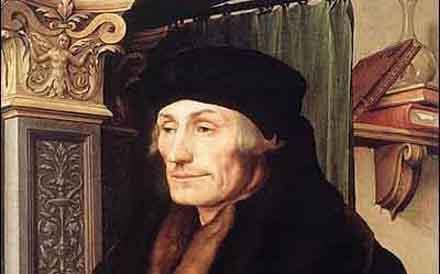
On this day in 1646 William Dobson, English painter died. Dobson spent his apprenticeship under William Peake, the Holborn picture dealer, printseller, and stationer. He then took further training under Francis Cleyn, the German engraver and decorative painter. It is claimed that he also enjoyed a close friendship with Anthony van Dyck, who worked for Charles I.
A shortage of surviving works from the 1630s shows that Dobson did not receive many commissions during this period. Dobson married Judith Sander on 18th December 1637 at St Bride's Church, Fleet Street. After the death of Anthony van Dyck in December 1641 the king appointed him as his Principal Painter. In January 1642 Dobson moved with the rest of the royal court from London to Oxford. During the English Civil War Dobson painted all the leading Cavaliers.
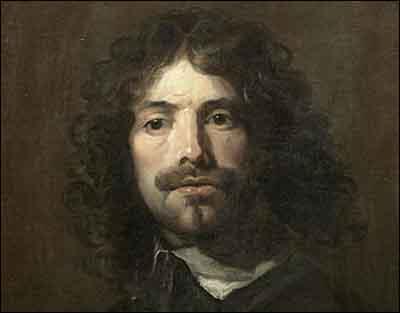
On this day in 1647 the Putney Debates began. In 1646 John Lilburne, John Wildman, Richard Overton and William Walwyn formed a new political party called the Levellers. Their political programme included: voting rights for all adult males, annual elections, complete religious freedom, an end to the censorship of books and newspapers, the abolition of the monarchy and the House of Lords, trial by jury, an end to taxation of people earning less than £30 a year and a maximum interest rate of 6%.
The Levellers gained considerable influence in the New Model Army. In October, 1647, the Levellers published An Agreement of the People. As Barbara Bradford Taft has pointed out: "Under 1000 words overall, the substance of the Agreement was common to all Leveller penmen but the lucid phrasing of four concise articles and the eloquence of the preamble and conclusion leave little doubt that the final draft was Walwyn's work. Inflammatory demands were avoided and the first three articles concerned the redistribution of parliamentary seats, dissolution of the present parliament, and biennial elections. The heart of the Leveller programme was the final article, which enumerated five rights beyond the power of parliament: freedom of religion; freedom from conscription; freedom from questions about conduct during the war unless excepted by parliament; equality before the law; just laws, not destructive to the people's well-being."
The document advocated the granting of votes to all adult males except for those receiving wages. The wage-earning class, although perhaps numbering nearly half the population, were regarded as "servants" of the rich and would be under their influence and would vote for their employer's candidates. "Their exclusion from the franchise was thus regarded as necessary to prevent the employers from having undue influence, and there is reason to think that this judgement was correct."
On 28th October, 1647, members of the New Model Army began to discuss their grievances at the Church of St. Mary the Virgin, but moved to the nearby lodgings of Thomas Grosvenor, Quartermaster General of Foot, the following day. This became known as the Putney Debates. The speeches were taken down in shorthand and written up later. As one historian has pointed out: "They are perhaps the nearest we shall ever get to oral history of the seventeenth century and have that spontaneous quality of men speaking their minds about the things they hold dear, not for effect or for posterity, but to achieve immediate ends."
Thomas Rainsborough, the most radical of the officers, argued: "I desire that those that had engaged in it should speak, for really I think that the poorest he that is in England hath a life to live as the greatest he; and therefore truly. Sir, I think it's clear that every man that is to live under a Government ought first by his own consent to put himself under that Government; and I do think that the poorest man in England is not at all bound in a strict sense to that Government that he hath not had a voice to put himself under; and I am confident that when I have heard the reasons against it, something will be said to answer those reasons, in so much that I should doubt whether he was an Englishman or no that should doubt of these things."
John Wildman supported Rainsborough and dated people's problems to the Norman Conquest: "Our case is to be considered thus, that we have been under slavery. That's acknowledged by all. Our very laws were made by our Conquerors... We are now engaged for our freedom. That's the end of Parliament, to legislate according to the just ends of government, not simply to maintain what is already established. Every person in England hath as clear a right to elect his Representative as the greatest person in England. I conceive that's the undeniable maxim of government: that all government is in the free consent of the people."
Edward Sexby was another who supported the idea of increasing the franchise: "We have engaged in this kingdom and ventured our lives, and it was all for this: to recover our birthrights and privileges as Englishmen - and by the arguments urged there is none. There are many thousands of us soldiers that have ventured our lives; we have had little property in this kingdom as to our estates, yet we had a birthright. But it seems now except a man hath a fixed estate in this kingdom, he hath no right in this kingdom. I wonder we were so much deceived. If we had not a right to the kingdom, we were mere mercenary soldiers. There are many in my condition, that have as good a condition, it may be little estate they have at present, and yet they have as much a right as those two (Cromwell and Ireton) who are their lawgivers, as any in this place. I shall tell you in a word my resolution. I am resolved to give my birthright to none. Whatsoever may come in the way, and be thought, I will give it to none. I think the poor and meaner of this kingdom (I speak as in that relation in which we are) have been the means of the preservation of this kingdom."
These ideas were opposed by most of the senior officers in the New Model Army, who represented the interests of property owners. One of them, Henry Ireton, argued: "I think that no person hath a right to an interest or share in the disposing of the affairs of the kingdom, and indetermining or choosing those that determine what laws we shall be ruled by here - no person hath a right to this, that hath not a permanent fixed interest in this kingdom... First, the thing itself (universal suffrage) were dangerous if it were settled to destroy property. But I say that the principle that leads to this is destructive to property; for by the same reason that you will alter this Constitution merely that there's a greater Constitution by nature - by the same reason, by the law of nature, there is a greater liberty to the use of other men's goods which that property bars you."
A compromise was eventually agreed that the vote would be granted to all men except alms-takers and servants and the Putney Debates came to an end on 8th November, 1647. The agreement was never put before the House of Commons. Leaders of the Leveller movement, including John Lilburne, Richard Overton, William Walwyn and John Wildman, were arrested and their pamphlets were burnt in public.
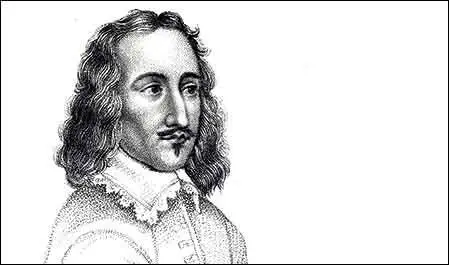
On this day in 1794 the trial of John Thelwall, Thomas Hardy and John Horne Tooke for treason began. All three men had been members of the London Corresponding Society. The society passed a series of resolutions and after being printed on handbills, they were distributed to the public. These resolutions also included statements attacking the government's foreign policy. A petition was started and by May 1793, 6,000 members of the public had signed saying they supported the resolutions of the London Corresponding Society. The prosecution, led by Lord Eldon, argued that the leaders of the London Corresponding Society were guilty of treason as they organised meetings where people were encouraged to disobey King and Parliament. However, the prosecution was unable to provide any evidence that Hardy and his co-defendants had attempted to do this and the jury returned a verdict of "Not Guilty".
The government continued to persecute John Thelwall and other supporters of parliamentary reform. Habeas Corpus was suspended in 1794, enabling the government to detain prisoners without trial. The Seditious Meetings Act made the organisation of parliamentary reform gatherings extremely difficult. At one public meeting addressed by Thelwall, on 26th October 1795, in Copenhagen Fields, it was claimed that over 150,000 people were in attendance. Although watched by government spies, Thelwall continued to give twice-weekly lectures in favour of political reform. These speeches were also published in Thelwall's journal, The Tribune. Thelwall also found time to write a book Rights of Nature that was published in 1796.
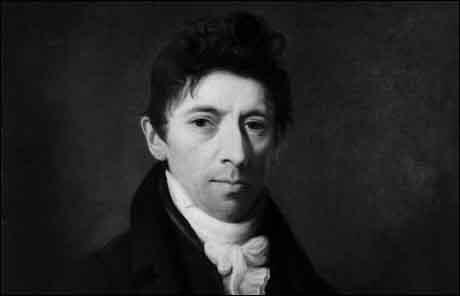
On this day in 1798 Levi Coffin, anti-slavery campaigner, was born in Greensboro. After a brief education he became a school teacher. A member of the Society of Friends, Coffin attempted in 1821 to start a school for slaves but their owners refused to allow them to attend. In 1826 Coffin moved to Newport, Indiana. This was on the route where fugitive slaves made their way from the South to Canada. Coffin soon became involved in helping the runaways and it has been estimated that over 3,000 slaves stayed at his home during their journey. Coffin moved to Cincinnati in 1847 where he opened a store selling goods made exclusively by freed slaves. He also visited England to raise funds for the cause and in 1867 he was a delegate to the International Anti-Slavery Conference in Paris.
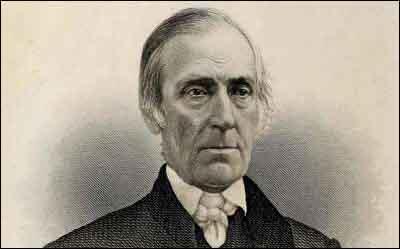
On this day in 1908 Violet Tillard unfurls a banner from the Ladies' Gallery in the House of Commons. Two women chained themselves to the grille in front of the Ladies' Gallery. Meanwhile a group of women including Tillard demonstrated in St Stephen's Hall. Tillard was one of the fourteen women arrested and taken to Cannon Row Police Station.As a result of this action she spent a month in prison.
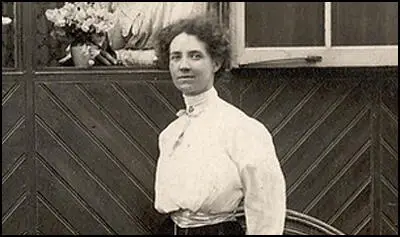
On this day in 1919 Congress passes the Volstead Act paving the way for Prohibition to begin the following January. Andrew Volstead, a leading Republican member of the House of Representatives, was the author of the National Prohibition Act (also known as the Volstead Act) that was passed by Congress. The law prohibited the manufacture, transportation and sale of beverages containing more than 0.5 per cent alcohol. The act was condemned by a large number of the American population who considered it a violation of their constitutional rights.
One of the consequences of the National Prohibition Act was the development of gangsterism and crime. Enforcement of prohibition was a difficult task and a growth in illegal drinking places took place. People called moonshiners distilled alcohol illegally. Bootleggers sold the alcohol and also imported it from abroad. The increase in criminal behaviour caused public opinion to turn against prohibition.
In the 1932 Presidential Election, the Democratic Party candidate, Franklin D. Roosevelt, promised an early end to prohibition. In February 1933, Congress voted to repeal the Eighteenth Amendment. While the Twenty-first Amendment was making its way through the states, Roosevelt requested quick action to amend the Volstead Act by legalizing beer of 3.2 per cent alcoholic content by weight. Within a week both houses passed the beer bill, and added wine for good measure. On 22nd March 1933, Roosevelt signed the bill.
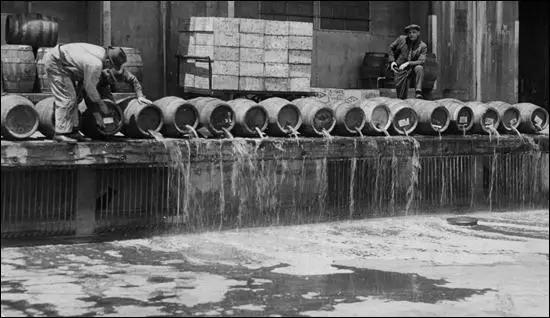
On this day in 1922 Italian fascists led by Benito Mussolini march on Rome. After the war Mussolini attacked Vittorio Orlando for failing to achieve Italy's objectives at the Versailles Peace Treaty and helped to organize the various right-wing groups in Italy into the Fascist Party. After a series of riots in 1922 King Victor Emmanuel III appointed Mussolini in an attempt to prevent a communist revolution in Italy. Mussolini headed a coalition of fascists and nationalists.
Mussolini was interviewed by the British journalist, Clare Sheridan, soon after he gained power. Sheridan had recently interviewed Lenin, Leon Trotsky, Gregory Zinoviev, Felix Dzerzhinsky, Alexandra Kollontai, Maxim Litvinov and Clara Zetkin and his first words to Sheridan was "I know all about you and your connections with the Russians". She responded with: "What do you think of their efforts? I want to write about your attitudes to the working classes." Mussolini reponded: "The working classes are studid, dirty, lazy and only need the cinema. They must be taken care of and learn to obey." Realising his mistake Mussolini told Sheridan: "I forbid you to publish anything I have told you. I have treated you as a friend not as a journalist-I have spoken openly-said too much. If you ever write anything about me I shall know it. I have agents all over the world and you will suffer. There is not a country where my Fascist police cannot penetrate."
responsible for the death of Giacomo Matteotti (1924)
On this day in 1962 Nikita Khrushchev orders the removal of Soviet missiles from Cuba. On October 24, President John F. Kennedy was informed that Soviet ships had stopped just before they reached the United States ships blockading Cuba. That evening Nikita Khrushchev sent an angry note to Kennedy accusing him of creating a crisis to help the Democratic Party win the forthcoming election.
On October 26, Khrushchev sent Kennedy another letter. In this he proposed that the Soviet Union would be willing to remove the missiles in Cuba in exchange for a promise by the United States that they would not invade Cuba. The next day a second letter from Khrushchev arrived demanding that the United States remove their nuclear bases in Turkey.
While the president and his advisers were analyzing Khrushchev's two letters, news came through that a U-2 plane had been shot down over Cuba. The leaders of the military, reminding Kennedy of the promise he had made, argued that he should now give orders for the bombing of Cuba. Kennedy refused and instead sent a letter to Khrushchev accepting the terms of his first letter.
Khrushchev agreed and gave orders for the missiles to be dismantled. Eight days later the elections for Congress took place. The Democrats increased their majority and it was estimated that Kennedy would now have an extra twelve supporters in Congress for his policies.
Khrushchev agreed and gave orders for the missiles to be dismantled. Eight days later the elections for Congress took place. The Democrats increased their majority and it was estimated that Kennedy would now have an extra twelve supporters in Congress for his policies.
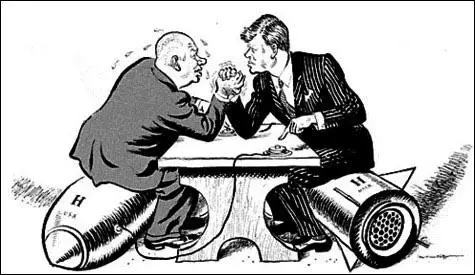
On this day in 1972 Lilian Lenton died in Twickenham.
Lilian Ida Lenton, the eldest daughter of Isaac Lenton (1867-1930) and his wife Mahala Bee Lenton (1864-1920), was born in Leicester on 5th January 1891.Her father was a carpenter-joiner and her mother worked in a glove factory.
Lenton later wrote: "In those days I was extremely annoyed at the difference between a boy and a girl. And when I grew up and saw the opportunities that boys had, and those that girls and women hade, of course that just increased the feeling. Why should God be male? That was one thing that always struck me."
After leaving school Lenton trained to be a dancer and took the name "Ida Inkley". A supporter of women's suffrage she heard Emmeline Pankhurst speak and later recalled that she "made up my mind that night that as soon as I was twenty-one and my own boss... I would volunteer" to get involved in the struggle for the vote and joined the Women's Social and Political Union.
On 4th March, 1912, window-breaking demonstration. This time the target was government offices in Whitehall. Lilian Lenton was one of the 200 suffragettes were arrested and jailed for taking part in the demonstration. She was found guilty and was sentenced to two months in Holloway Prison. After leaving prison she joined the campaign to destroy the contents of pillar-boxes. By December, 1912, the government claimed that over 5,000 letters had been damaged by the WSPU. The main figure in this campaign was May Billinghurst. Lenton recalled: "She (May Billinghurst) would set out in her chair with many little packages from which, when they were turned upside down, there flowed a dark brown sticky fluid, concealed under the rug which covered her legs. She went undeviatingly from one pillar box to another, sometimes alone, sometimes with another suffragette to do the actual job, dropping a package into each one."
In July 1912, Christabel Pankhurst began organizing a secret arson campaign. According to Sylvia Pankhurst: "When the policy was fully underway, certain officials of the Union were given, as their main work, the task of advising incendiaries, and arranging for the supply of such inflammable material, house-breaking tools and other matters as they might require. Women, most of them very young, toiled through the night across unfamiliar country, carrying heavy cases of petrol and paraffin. Sometimes they failed, sometimes succeeded in setting fire to an untenanted building - all the better if it were the residence of a notability - or a church, or other place of historic interest."
The WSPU used a secret group called Young Hot Bloods to carry out these acts. No married women were eligible for membership. The existence of the group remained a closely guarded secret until May 1913, when it was uncovered as a result of a conspiracy trial of eight members of the suffragette leadership, including Flora Drummond, Annie Kenney and Rachel Barrett. During the trial, Barrett said: "When we hear of a bomb being thrown we say 'Thank God for that'. If we have any qualms of conscience, it is not because of things that happen, but because of things that have been left undone."
Lilian Lenton claimed that she was one of the first people to join this group: "Well, I was at the Suffragette Headquarters and announced that I didn't want to break any more windows but I did want to burn some buildings, and I was told that a girl named Olive Wharry had just been in saying the same thing, so we two met, and the real serious fires in this country started and thereafter I was in and out of prison – six times I think it was – and whenever I was out of prison my object was to burn two buildings a week."
It has speculated that this group included Helen Craggs, Olive Hockin, Kitty Marion, Mary Richardson, Miriam Pratt, Norah Smyth, Clara Giveen, Hilda Burkitt, Olive Wharry and Florence Tunks. It would seem that Helen Craggs was the first to carry out an act of arson. On 13th July 1912 Craggs and another woman were found by P.C. Godden at one o'clock in the morning outside the country home of the colonial secretary Lewis Harcourt. He went towards them and asked them what they were doing. Craggs, said they were looking round the house. The policeman said, "This is not a very nice time for looking round a house. How did you come here? Where do you come from?" Craggs said that they had been camping in the neighbourhood. The police-constable said he had not seen any encampment. She then said they had arrived by the river. Godden seized Miss Craggs and arrested her, and she was taken into custody.
Lenton explained: "Well, the object was to create an absolutely impossible condition of affairs in the country, to prove that it was impossible to govern without the consent of the governed. A few young men were very anxious to help us. But these young men only seemed to have one idea, and that was bombs. Now I don't like bombs. After all, the rule was that we must risk no-one's lives but our own, and if you take a bomb somewhere, however great the precautions, you can't be one hundred percent sure."
Lenton joined forces with Olive Wharry and embarked on a series of terrorist acts. She was arrested on 19th February 1913, soon after setting fire to the tea pavilion in Kew Gardens. In court it was reported: "The constables gave chase, and just before they caught them each of the women who had separated was seen to throw away a portmanteau. At the station the women gave the names of Lilian Lenton and Olive Wharry. In one of the bags which the women threw away were found a hammer, a saw, a bundle to tow, strongly redolent of paraffin and some paper smelling strongly of tar. The other bag was empty, but it had evidently contained inflammables."
A police report on her behaviour when arrested suggested that Lenton was a difficult prisoner: "Has been in prison before but refuses to give any particulars. General conduct: bad, very defiant. Refuses medical examination - Is rather spare (thin).... Recognised by officers as having been in prison before but name cannot be given. Has taken no food since reception. Smashed up everything in the cell she was first placed in. Removed to a special strong cell. Kept apart from all other prisoners & not allowed to communicate. All privileges suspended."
Lenton went on hunger-strike and was forcibly fed before being released on 23rd February, 1913. The case caused a great deal of controversy. Reginald McKenna, the Home Secretary, denied that she had been forcibly fed and her illness was due to the effects of her hunger strike. In reality, she had been fed by nasal tube and two hours later the prison doctor reported that he found her "in a very collapsed condition" and "remained for about two hours in a very critical condition".
Lenton's supporters sent a letter to The Times: "She (Lenton) was certainly in imminent danger of death on that Sunday afternoon, but this was not due to her two days' fast, but to the fact that during forcible feeding executed by the prison doctors on the Sunday morning food was poured into her lungs... The plain facts of Miss Lenton's case prove clearly that the food which was forcibly injected into her lung set up a pleuro-pneumonic condition which, but for her youth and good healthy physique, could have ended more seriously. That the prison doctor and the governor recognised immediately what they had done is also obvious. They hurriedly and at the further risk of injury to the patient immediately removed her from the prison, so that at least she should not die there and thus compromise the Home Office, and our horrible prison administration of which they were the instruments."
After she recovered Lenton managed to evade recapture until arrested in June 1913 in Doncaster and charged with setting fire to to a railway station at Blaby, Leicestershire. She was held in custody at Armley Prison in Leeds. She immediately went on hunger-strike and was released after a few days under the Cat & Mouse Act. The following month she escaped to France in a private yacht. Lenton was soon back in England setting fire to buildings but in October 1913 she was arrested at Paddington Station. Once again she went on hunger-strike and was forcibly fed, but once again she was released when she became seriously ill.
Lilian Lenton was released on licence on 15th October. She escaped from the nursing home and was arrested on 22nd December 1913 and charged with setting fire to a house in Cheltenham: "The two Suffragettes who, minus shoes and stockings, and with their hair falling on their shoulders, were charged at Cheltenham on Monday last week with setting fire to Alstone Lawn, an unoccupied mansion belonging to Colonel De Sales la Terriere, were released from Worcester Goal on Sunday following a hunger strike. Both women refused any information with regard to themselves, but one has been identified as Lilian Lenton, who was at liberty under Cat and Mouse Act. The second prisoner is still unidentified."
After another hunger-and-thirst strike, Lenton was released on 25th December to the care of Mrs Impey in King's Norton. Once again she escaped and evaded the police until early May 1914 when she was arrested in Birkenhead. "Miss Lilian Lenton, the well-known Suffragette, was rearrested at Birkenhead yesterday. She had been staying with friends, and was a Birkenhead detective. Miss Lenton was heavily veiled, and wore a cream jersey and large hat. She will be handed over to Scotland Yard detectives today."
Lenton was "indicted for feloniously breaking into a dwelling-house near Doncaster with intent to commit a felony and set fire to the same." One newspaper reported: "Mary Temple Beechcroft, said she was 72, and a housekeeper. In June last she was alone in the house, and heard a noise during the night. On going downstairs she saw accused and another, who had already been tried. The police arrived and fire-lighters were found on the stairs… paraffin and cotton wool were also discovered."
The Suffragette provided a detailed account of the trial. "Throughout the trial Miss Lenton, in spite of the fact that she was obviously weak and ill, kept up a continuous address to the jury, which practically drowned the hearing of the case." The prosecutor claimed that her actions could of resulted in the housekeeper. Lenton replied: "This is absolutely ridiculous, because we always look first to see if anyone is there."
Lenton was found guilty and sentenced to 12 months imprisonment. "Although she had been committed for trial several times previously, this is the first time that any sentence has been passed on her. In Court, in spite of the fact that she was weak and ill owing to over four days' hunger and thirst strike, she continued, with a courage that dominated all in Court, to address the jury during the whole of the case, thus rendering the legal proceedings inaudible." Lenton told the judge: "No man who was anything, but a cad can possibly pass judgement on a woman who is charged with breaking laws she has had no hand in making."
The British government declared war on Germany on 4th August 1914. Two days later, Millicent Fawcett, the leader of the NUWSS declared that the organization was suspending all political activity until the conflict was over. Fawcett supported the war effort but she refused to become involved in persuading young men to join the armed forces. The WSPU took a different view to the war. It was a spent force with very few active members. According to Martin Pugh, the WSPU were aware "that their campaign had been no more successful in winning the vote than that of the non-militants whom they so freely derided".
The WSPU carried out secret negotiations with the government and on the 10th August the government announced it was releasing all suffragettes from prison. In return, the WSPU agreed to end their militant activities and help the war effort. Christabel Pankhurst, arrived back in England after living in exile in Paris. She told the press: "I feel that my duty lies in England now, and I have come back. The British citizenship for which we suffragettes have been fighting is now in jeopardy."
After receiving a £2,000 grant from the government, the WSPU organised a demonstration in London. Members carried banners with slogans such as "We Demand the Right to Serve", "For Men Must Fight and Women Must Work" and "Let None Be Kaiser's Cat's Paws". At the meeting, attended by 30,000 people, Emmeline Pankhurst called on trade unions to let women work in those industries traditionally dominated by men. She told the audience: "What would be the good of a vote without a country to vote in!".
In 1914 Eveline Haverfield, a member of the WSPU, founded the Women's Emergency Corps, an organisation which helped organize women to become doctors, nurses and motorcycle messengers. Later she was appointed as Commandant in Chief of the Women's Reserve Ambulance Corps, Haverfield was instructed to organize the sending of the Scottish Women's Hospital Units to Serbia. In August, 1916, Lilian Lenton went with Haverfield, Dr. Else Inglis, Elsie Bowerman, and Vera Holme to the Balkan Front.
Haverfield was appointed head of the transport column and in August 1916 she was dispatched to Russia. Her biographer, Elizabeth Crawford, has commented: "Haverfield sailed for Russia, in charge of the unit's transport column, which comprised seventy-five women noted for their smart uniforms and shorn locks. She herself is invariably described as being small, neat, and aristocratic, able to command devotion from her troops, although some of her peers, not so enamoured, were scathing of her ability."
On 28th March, 1917, the House of Commons voted 341 to 62 that women over the age of 30 who were householders, the wives of householders, occupiers of property with an annual rent of £5 or graduates of British universities. The Manchester Guardian reported: "This doubled the electorate, giving the Parliamentary vote to about six million women and placing soldiers and sailors over 19 on the register (with a proxy vote for those on service abroad), simplifies the registration system, greatly reduces the cost of elections, and provides that they shall all take place on one day, and by a redistribution of seats tends to give a vote the same value everywhere, passed both Houses yesterday and received the Royal assent."
After the passing of the Qualification of Women Act the first opportunity for women to vote was in the General Election in December, 1918. Several of the women involved in the suffrage campaign stood for Parliament. Only one, Constance Markiewicz, standing for Sinn Fein, was elected. Lenton later recalled: "Men had a vote at 21, all men. Women only had a vote when they were 30, and then only if they were householders or the wives of male householders. Personally, I didn't vote for a very long time because I hadn't either a husband or furniture."
In 1924 Lilian Lenton was employed as a travelling organizer and speaker for the Women's Freedom League (WFL). During this period she often stayed with Alice Schofield in Middlesbrough. Both women were vegetarians and worked for animal welfare charities. Lenton also wrote for the WFL newsparer, The Vote and toured the country making speeches in favour of all women getting the vote. She was also editor of the WFL's The Women's Bulletin for eleven years.
In July 1925, Lenton spoke at a meeting in Clyde. "Many of the questions the speaker (Lilian Lenton) is asked: several are irrelevant, many simply argumentative, whilst others show a real desire for information and understanding. We have the young men who fear the competition of women in the labour market, alleging that because of it they are unemployed – on what the woman is to live they neither know nor care; and others openly evince apprehension lest, when a woman can earn a decent living, her desire for the ties of matrimony may diminish, and loudly answer in the affirmative when asked if they like the idea that a woman is dependent upon them. Not few in number are the youths of about 16 who assert our "mental and physical" inferiority to the male sex."
After 1925 she was financial secretary of the National Union of Women Teachers. She was a member of the Status of Women Committee and the honorary treasurer of the Suffragette Fellowship. She also gave several interviews on her time in the Women's Social and Political Union. This included two on the BBC: Charlotte March and Lilian Lenton: Militant Suffragettes and Lilian Lenton explains the Cat and Mouse Act.
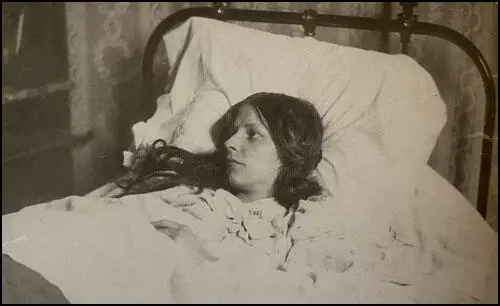
On this day in 1997 Paul Jarrico, American blacklisted screenwriter died. Jarrico attended the University of California before moving to Hollywood where he found work as a screenwriter. Early films include No Time to Marry (1937), The Little Adventures (1938), Beauty for the Asking (1939), The Face Behind the Mask (1941), Tom, Dick and Harry (1941), Thousands Cheer (1943) and Song of Russia (1943).
During this period the House of Un-American Activities Committee (HUAC) opened its hearings concerning communist infiltration of the motion picture industry. The chief investigator for the committee was Robert E. Stripling. The first people it interviewed included Ronald Reagan, Gary Cooper, Ayn Rand, Jack L. Warner, Robert Taylor, Adolphe Menjou, Robert Montgomery, Walt Disney, Thomas Leo McCarey and George L. Murphy. These people named several possible members of the American Communist Party.
As a result their investigations, the HUAC announced it wished to interview nineteen members of the film industry that they believed might be members of the American Communist Party. This included Larry Parks, Herbert Biberman, Alvah Bessie, Lester Cole, Albert Maltz, Adrian Scott, Dalton Trumbo, Edward Dmytryk, Ring Lardner Jr., Samuel Ornitz, John Howard Lawson, Bertolt Brecht, Richard Collins, Gordon Kahn, Robert Rossen and Lewis Milestone.
The first ten witnesses called to appear before the HUAC, Biberman, Bessie, Cole, Maltz, Scott, Trumbo, Dmytryk, Lardner, Ornitz and Lawson, refused to cooperate at the September hearings and were charged with "contempt of Congress". Known as the Hollywood Ten, they claimed that the 1st Amendment of the United States Constitution gave them the right to do this. The courts disagreed and each was sentenced to between six and twelve months in prison. The case went before the Supreme Court in April 1950, but with only Justices Hugo Black and William Douglas dissenting, the sentences were confirmed.
Jarrico gave evidence on the 13th April and argued that the treatment of the Hollywood Ten meant that it was impossible for him to cooperate with the HUAC: "Ten of my friends, very dear friends, have gone to jail for coming before this body and saying that Congress may not investigate in any area in which it may not legislate, and since the Constitution of the United States specifically states that Congress shall make no law restricting the freedom of speech, and since countless decisions of the courts have held that this provision of the Constitution means that Congress cannot investigate into areas of opinion, of conscience, of belief, I believe that in asking that those men be cited for contempt of Congress and in successfully sending these men to jail, that this committee has subverted the meaning of the American Constitution."
Jarrico refused to identify people who were members of left-wing groups and after being sacked from his $2,000 a week job with Columbia Pictures, was blacklisted by the Hollywood studios. Jarrico pointed out in 1955: "There is a direct relation between the blacklist and the increasing emphasis of the Hollywood film on prowar and anti-human themes. We have seen more and more pictures of violence for the sake of violence, more and more unmotivated brutality on the screen as the blacklist grew."
In 1954 Jarrico worked with Michael Wilson, Adrian Scott and Herbert Biberman on Salt of the Earth (1954), a film about a mining strike in New Mexico. Although the film earned critical acclaim in Europe, winning awards in France and Czechoslovakia, it was not allowed to be shown in the United States until 1965.
Jarrico continued to write under assumed names. This included the film The Girl Most Likely (1957). After the blacklist was lifted he wrote the screenplays for All Night Long (1961), Seaway (1965), Sanctuary (1967) and Avenging Angels (1988).
